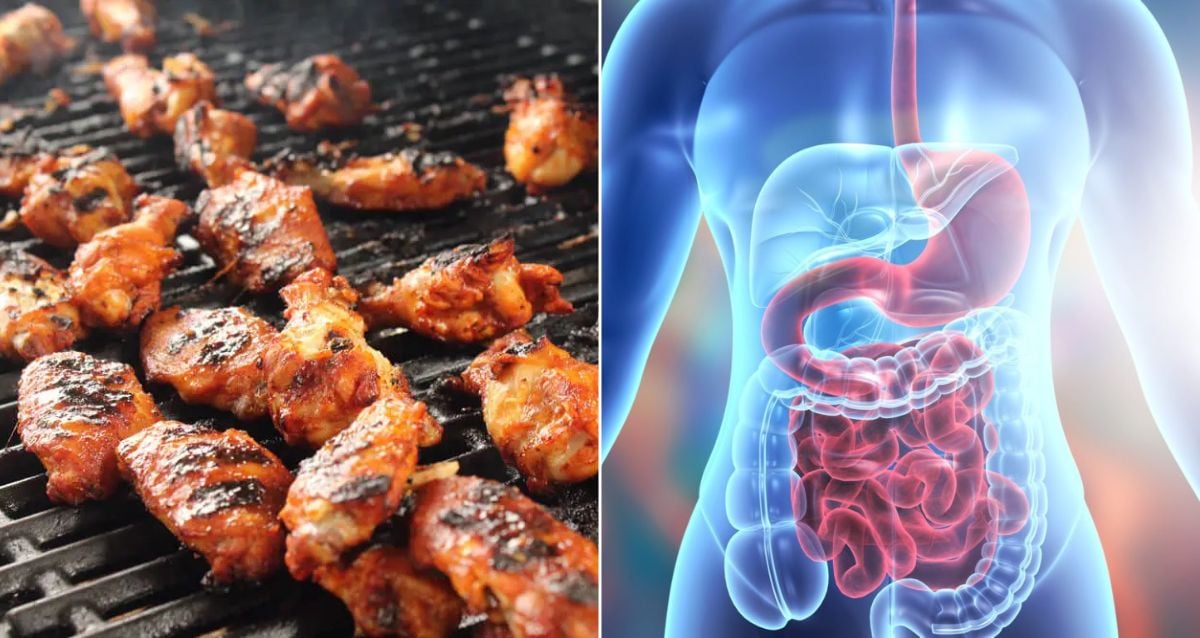Shocking Study Reveals How Just 10 Ounces of Chicken Weekly Could Dramatically Shorten Your Lifespan
So, here’s a curveball for you next time you’re eyeing that second helping of grilled chicken — what if gobbling down more than 10.5 ounces of white meat a week actually bumped up your risk of, well, not sticking around as long? Yeah, it sounds like a punchline from a diet joke, but a sprawling Italian study tracking almost 5,000 people over two decades popped that notion into the conversation. Now, don’t go blaming your Sunday roast just yet — scientists aren’t waving the cancer flag wildly here. Turns out, factors like how you cook that bird and what else is on your plate might be the real culprits hiding backstage. Still, it makes you wonder: is chicken really the “healthy safe bet” it’s been crowned, or have we just been too cozy with this clucker all along? Guess it’s time to rethink our poultry paranoia — but hey, moderation might just be the secret sauce. LEARN MORE
Eating more than 10.5 ounces of white meat each week could lead to an increased mortality risk — but scientists aren’t necessarily claiming that chicken causes cancer.

Daniel Hooper/UnsplashCooking chicken at higher temperatures or eating processed meat could play a major role in the increased mortality risks uncovered in this study.
A multi-year Italian study suggests there is a link between regularly consuming large amounts of poultry and an increased risk of gastrointestinal cancers and cardiovascular disease.
The study, which followed nearly 5,000 participants over the course of two decades, found that those who ate more than 10.5 ounces (300 grams) of poultry each week had a 27 percent higher overall mortality risk and double the risk of developing gastrointestinal cancers compared to those who consumed less than 3.5 ounces (100 grams) weekly. The study is a notable departure from previous research, which found that higher poultry consumption actually reduced health risks.
There were limitations, of course, including a lack of information about the cooking methods used and other lifestyle factors like physical activity levels. Still, study authors recommend moderating poultry intake and substituting more fish and plant-based proteins, as well as avoiding high-temperature cooking methods.
So, should we be worried about how much chicken we are consuming?
Findings From The Multi-Year Study On Poultry Intake And Cancer Risk
Chicken is one of the most widely consumed meats worldwide, thanks in part to its versatility, affordability, and flavor. In recent years, it has also been considered a healthier option when compared to red meat. Numerous studies, in fact, have linked higher intake of red meat to health issues like heart disease, cancer, and diabetes. Chicken, however, always seemed like a safe bet.
This new study suggests otherwise. Published in the academic journal Nutrients, the study aimed to examine the association between poultry consumption and mortality risk — both from all causes and gastrointestinal cancers — in a population in southern Italy.
The study involved 4,869 participants from Castellana Grotte and Putignano, Italy, who reported their consumption habits over the course of 18 years, from 2006 to 2024.

Rickie-Tom Schünemann/UnsplashOther factors like physical activity were not factored in.
Researchers found that subjects who ate more than 10.5 ounces, or 300 grams, of poultry per week had a 27 percent higher risk of dying than those who ate around 3.5 ounces, or 100 grams. The risk increased even more for participants who consumed far more than 10 ounces. Men likewise had twice the risk of gastrointestinal cancer mortality.
Participants were asked to log their weekly meat consumption, dividing it into categories for total meat, red meat, and poultry. They found that a moderate total meat intake — between roughly seven and 10 ounces — was linked to a protective effect against both all-cause mortality and gastrointestinal cancer mortality. Red meat consumption of between five and eight ounces per week showed a similar protective association.
Curiously, these findings seem to conflict with previous studies, which suggested that a higher intake of red meat led to an increased risk of health issues, whereas chicken and other white meat were considered a safer and healthier option.
The study did highlight that more research into this potential connection is required, though it still challenges the notion that poultry is categorically “healthier” than red meat. Researchers recommended moderating chicken consumption and swapping in more fish and plant-based proteins.
That said, there were several limitations that indicate an association between poultry intake and increased mortality, rather than a direct cause.
What Were The Limitations In This Study?
“This study found an association, not a direct cause, between higher poultry intake and increased mortality, especially from gastrointestinal cancers,” Theresa Gentile, a spokesperson for the Academy of Nutrition and Dietetics, told Real Simple. “It doesn’t mean poultry causes cancer.”



















